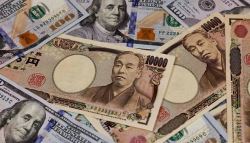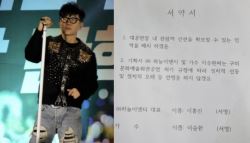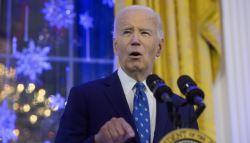[이데일리 마이클브린 칼럼니스트] 한국을 처음 방문하는 외국인 사업가들은 누구나 한국의 발전상에 혀를 내두른다. 일전에 한 아일랜드인은 나에게 "난 한국이 제3세계쯤 되는 나라라고 생각했는데, 정말 놀라웠다"고 말하기도 했다.
한국인들은 그런 평가를 자랑스럽게 여겨왔다. 기대 이상이라는 평가는 분명 기분 좋은 일이다. 하지만 한국은 이미 선진국의 대열에 이른 나라이다. 시험을 잘 치른 학생들처럼 머리를 토닥이며 칭찬해주길 기대할 필요는 더 이상 없지 않을까.
한국은 경제 규모 세계 제 12위를 자랑하는 나라이다. 세계적으로 인정 받아 마땅한데, 막상 현실은 그렇지가 못하다. 한국을 바라보는 세계의 눈길은 한국의 실제 위상에 미치지 못한다.
이 괴리는 수십억 달러를 들여서라도 반드시 좁혀야 한다.
한국의 주식시장은 40% 이상이 해외의 투자자들로 이뤄져 있다. 삼성전자, 하나은행, KT&G 와 같은 우량 기업의 지분 상당수를 외국인들이 쥐고 있다. 갑작스레 그 자금들이 빠져나간다면 재앙이나 다름 없는 사태가 벌어질 것이다.
또 한국에는 더 많은 직간접 투자의 기회들이 잠자고 있다. 이들이 아직 깨어나지 못한 건 그만큼 한국이 투자자들에게 알려지지 못한 때문이다. 하지만 위상의 차이를 줄이는 건 어려운 일이다.
한국이 인지도 면에서 떨어지고 이미지가 좋지 않다는 것을 정부는 이미 오래 전부터 알고 있었다. 이에 인베스트 코리아(Invest Korea), 대한무역투자진흥공사 등 많은 정부기관들이 산업자원부의 지원 아래 적극적으로 활동하고 있다. 그러나 그런 기관들이 자신의 전문영역을 벗어난 외부의 문제까지 해결해주리라 기대하는 건 무리이다.
이는 사실 대통령의 주의가 요구되는 문제이다. 큰 틀에서 윤곽을 잡아주고 일관적인 지침과 함께 실무진을 조율해주는 역할이 필요하다. 대통령은 한국의 CEO로서 전체 업무 약 삼분의 일에 해당하는 시간을 국가 홍보에 나서야 한다. 투자자들에게 한국을 알리고 국가적 평판을 관리하는 데 시간을 들여야 한다.
해외순방은 곧 투자유치를 위한 로드쇼로 여겨져야 한다. 대통령의 발언은 해외의 투자자들에게 어떤 감정적 효과를 가져올 것인가 하는 관점에서 짚어져야 한다. 대통령이 집행하고 추진하는 모든 정책 역시 투자 유치의 측면에서 검토되어야 한다. 북한 핵실험사태 이후 금강산 여행을 지속하는 결정에서 전시작전통수권의 환수에 이르기까지, 모든 정책은 투자자들과의 관계 속에서 고려되어야 한다.
대통령은 또한 산업자원부, 재정경제부, 외교통상부 등의 정부기관을 도와 관계부처가 원활하게 조율되어 돌아가는 모습을 보여주어야 한다. 긍정적인 이미지를 구축하는 데 힘써야 하는 것이다. 대통령은 이 같은 프로모션을 꾸준하고 일관성 있게 추진해 나가야 한다. 북한핵실험 사태와 같은 위기상황에서만 앞에 나설 일이 아닌 것이다.
한국을 프로모션하기에는 또 다른 어려움이 남아있다. 외국의 옵서버들은 한국이 자국을 설명하는 일에 능숙하지 못하다고 지적한다. 논쟁이나 토론에 좀처럼 끼어들지 않으려는 전반적인 습성 때문인 것 같다. 그러나 한국은 이에 꼭 뛰어들어야 한다. 한국의 미래가 걸려 있기 때문이다.
마이클 브린(인사이트 커뮤니케이션즈 컨설턴츠 대표이사)
<영어원문>
PROMOTING KOREA
Foreign business people visiting Korea for the first time always express surprise at how developed the country is. "I was expecting the Third World," one Irish visitor once said to me. "But this place is amazing."
Such comments used to make Koreans proud. It is nice to be discovered to be better than people expected. But Korea is an advanced country and doesn’t need to be patted on the head by other advanced countries as if it has passed a middle school exam.
The world’s 12th largest economy should be well known. But it isn’t. There is a gap between what’s real in Korea and the perceptions overseas.
Closing that gap is a multi-billion dollar necessity for Korea.
Over 40 percent of the Stock Market is foreign. Many of the best known companies(Samsung Electronics, Hana Bank, KT&G) are majority foreign-owned. If that money were to be withdrawn in a panic, it would be a catastrophe.
On the other hand, there is a lot more potential investment, both direct and indirect, that is not here because those investors don’t know anything about Korea. But closing the gap is difficult.
The government has known for several years that the country has low awareness and bad image problems. Various agencies do their part. Invest Korea and KOTRA under the Ministry of Commerce, Industry and Energy are active attracting foreign direct investment. The Ministry of Finance & Economy addresses the indirect investment community. But they cannot be expected to solve problems that lie outside of their area of expertise.
This is, in fact, a problem that calls for presidential attention. It requires guidance from the top and consistency and coordination in the working-level execution. Put another way, the President, as CEO of Korea Inc. needs to be spending one third of his time on Investor Relations and Reputation Management.
His overseas tours need to be considered as Investor Relations roadshows. His comments need to be considered for the effect they will have on sentiment about Korea. Every program he pushes or decision he makes, from continuing the Kumgangsan Tours in the face of North Korea’s nuclear test to requesting the return of wartime control from the U.S. military, needs to be examined from the perspective of this national I.R. part of his job description.
He should also support the work of MOCIE, MOFE, MOFAT and other agencies concerned with the national image by making sure that there is some measure of coordination. And he also needs to make sure that the efforts to promote Korea are consistent - rather than just occasional responses to crises, such as the North Korea nuclear test.
There is another aspect to this effort by Korea that is more difficult to get right. Foreign observers often note that Korea does not explain itself very well. There is a reluctance in Korea to engage in the battle of ideas. But this is a battle Korea must engage in. Its future depends on it.
By Michael Breen(The president of Insight Communications Consultants)




!['7억8000만원' 로또 1등 남편 살해한 여성이 한 말 [그해 오늘]](https://image.edaily.co.kr/images/vision/files/NP/S/2024/12/PS24122400001t.jpg)